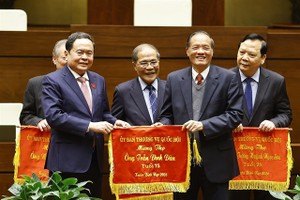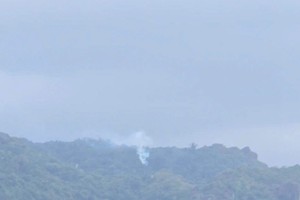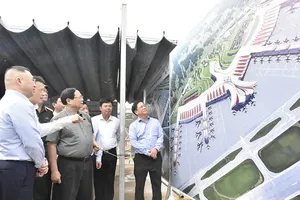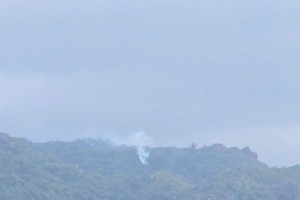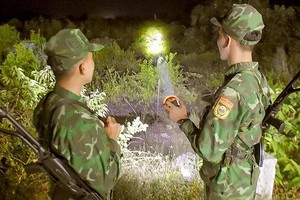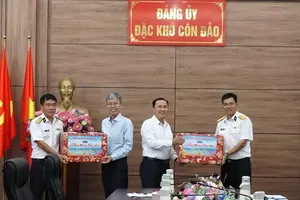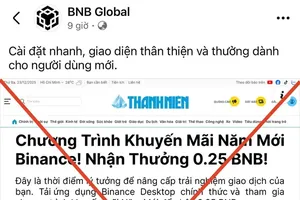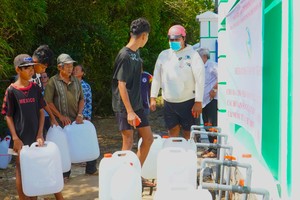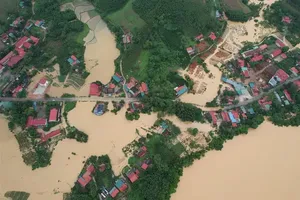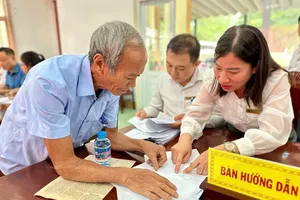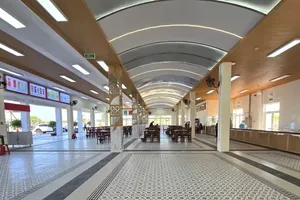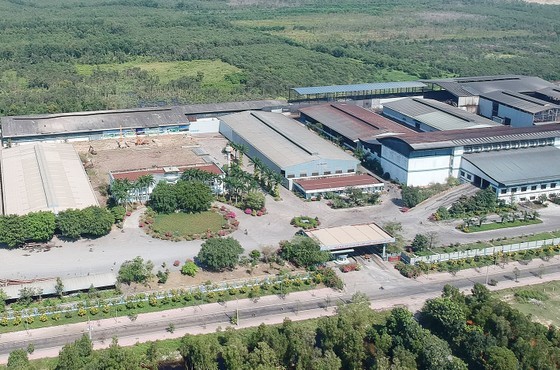 |
Waste incineration projects in the Northwest Complex for Solid Waste Treatment of Cu Chi District are way behind schedule |
Deputy Director Le Van Tam of the Vietnam Institute of Tropical Technology and Environmental Protection informed that in Vietnam now there are 20 waste incineration projects, four of which are in operation while the rest have not finished yet mostly due to a lack of appropriate legal corridor.
For instance, the ‘Electricity Planning No. VIII’ has not been approved, nor does it obtain clear regulations on power buying price. Besides complicated procedures for the investment in waste incineration in Vietnam, policy barriers have severely reduced the efficiency for such large amounts of money, not to mention too long payback periods of around 10-20 years.
Deputy Director Tam stressed that the tardiness in building waste incineration plant might lead to unwanted results like garbage still being treated by landfill method, which wastes resources and increases greenhouse gas emission; slowness in developing recycling energy, making it harder for Vietnam to fulfill the national goal of green growth.
General Director Ngo Nhu Hung Viet of Vietstar Co. (sited in HCMC) shared that after the project launching ceremony of a waste incineration plant in the Solid Waste Treatment Site of Cu Chi District in 2019 (with an estimated capacity of 2,000 tonnes per day), his company had to wait for the construction permit. Despite much effort of the municipal authorities in working with related ministries and state agencies, necessary documents for the projects (construction permit, environment impact evaluation) are still nowhere to be seen.
Many other investors in HCMC such as Tam Sinh Nghia Co. Tasco Co. are encountering similar trouble to Vietstar Co.
Experts in the field commented that to address the above issue and attract more investors in waste incineration projects, obstacles in administrative procedures must be cleared.
Deputy Director Tam proposed that state agencies need to specify mechanisms, policies in developing power from waste (planning, power buying price, technical assessment criteria, economic – technical quota for solid waste collection, transportation, and treatment). ‘Electricity Planning VIII’ should be approved as soon as possible, along with the completion of legal documents, adjustment for troublesome procedures.
Also, it is advisable to establish supporting loan amounts for businesses investing in waste incineration technologies. Many other businesses mentioned the need for comprehensive planning for urban waste management with a vision for 30 – 50 years.
More importantly, only when major cities like Hanoi, HCMC can classify household waste at source and introduce suitable policies for waste treatment prices and power selling prices will Vietnam be able to attract more investors.
Besides the proposal above, International Finance Corp (IFC – member of World Bank) suggested that the Government should review and amend legal documents and administrative procedures regarding waste incineration projects so that investors are more confident participating in this field, effectively contributing to the development of an environment industry in Vietnam. Moreover, investors themselves have to improve their capacity to satisfy the standards of international organizations if the former wants to attract money from the latter.
Director Nguyen Toan Thang of the HCMC Department of Natural Resources and Environment informed that his organization has just sent a formal dispatch to HCMC People’s Committee and the municipal Department of Planning and Investment for a proposal to invest VND763 billion (US$32.5 million) to build roads into a solid waste treatment factory to retrieve power, sited in the Northwest Complex for Solid Waste Treatment of Cu Chi District.
Accordingly, the land clearance and compensation task as well as resident resettlement task for the project have not been completed, plus there is no route to link between the project site to the current infrastructure in the area. It is, therefore, necessary to finish these tasks quickly so that the land lot of 16.4ha (including 10.4ha for the factory) can be constructed and put into operation.
HCMC aims at having 80 percent and 100 percent solid waste treated with advanced technologies in 2025 and 2030 respectively. It is determinedly carrying out two solutions of transforming treatment technologies in current factories into waste incineration and bidding to select suitable investors to adopt state-of-the-art waste treatment technologies under the model of Public – Private Partnership.








